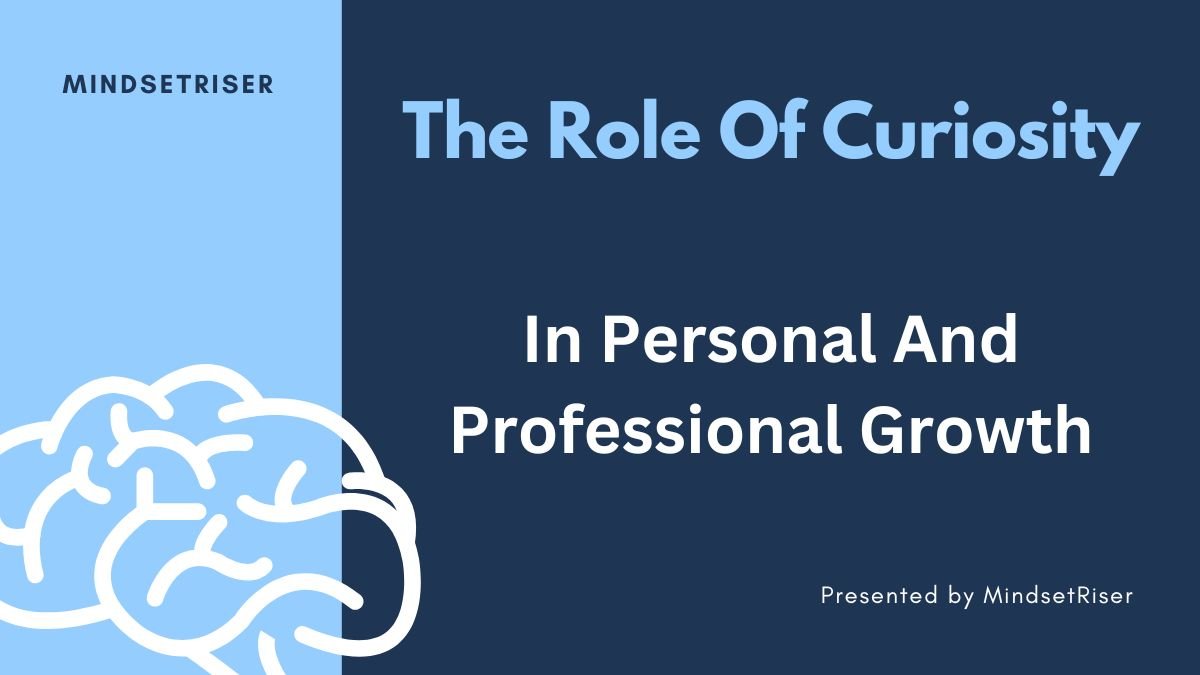The Role of Curiosity in Personal and Professional Growth
Curiosity is the spark that ignites learning, growth, and innovation. Whether it’s seeking out new knowledge, exploring new opportunities, or solving complex problems, curiosity plays a crucial role in both personal and professional growth. It’s not just about asking questions; it’s about embracing the process of discovery and challenging the status quo to achieve success and self-improvement.
In this article, we will explore how curiosity fuels both personal and professional development, its benefits, and how you can cultivate this essential skill to unlock your full potential.
What is Curiosity and Why is it Important?
Curiosity is the natural desire to learn, explore, and understand the world around us. It’s what drives us to seek new experiences, ask questions, and discover solutions to problems. Whether you’re trying to solve a problem, expand your knowledge, or improve your skills, curiosity is the foundation of learning and growth.
In both personal and professional spheres, curiosity leads to better decision-making, deeper learning, and a continuous drive for self-improvement. It’s the key to becoming a more adaptive, creative, and resourceful individual—qualities that are essential for navigating the complexities of life and work.
Curiosity in Personal Growth
Curiosity is at the heart of personal growth. When we’re curious, we’re motivated to explore new areas of interest and self-improvement. This drive to learn and understand more about ourselves and the world around us allows for continuous self-discovery.
Self-Awareness and Emotional Intelligence
Curiosity helps you gain a better understanding of your strengths and weaknesses. By actively questioning and reflecting on your thoughts and behaviors, you can become more self-aware, which is a vital aspect of personal growth. Curious individuals are more likely to seek feedback, reflect on their actions, and adapt to new information, leading to improved emotional intelligence and better decision-making.
Improved Relationships
Curiosity also improves relationships. By being genuinely curious about the perspectives, feelings, and experiences of others, you can build stronger connections and create deeper emotional bonds. Whether at home or in your social circles, asking thoughtful questions and actively listening can foster more meaningful relationships.
Exploration of New Interests
Curiosity encourages you to step out of your comfort zone and try new things. This could mean picking up a new hobby, exploring a different career path, or learning about a culture or idea you’ve never encountered before. The more you explore, the more you expand your horizons and evolve as a person.
Curiosity in Professional Growth
Curiosity is just as vital in the professional world as it is in personal life. In fact, the most successful professionals are often the most curious. Here’s why curiosity is a game-changer for career growth:
Embracing Challenges and Innovation
Curious individuals are more likely to seek challenges and explore innovative solutions. They don’t just accept things as they are—they constantly ask how things can be improved or what new ideas can be implemented. This mindset leads to creativity and innovation, qualities that are highly valued in the workplace.
Adaptability and Career Advancement
In today’s fast-paced world, curiosity drives adaptability. Professionals who are curious are more willing to learn new skills, keep up with industry trends, and embrace new technologies. This proactive attitude toward learning enables them to stay ahead of the curve and advance in their careers.
Leadership and Team Collaboration
Curiosity also plays a key role in leadership. Great leaders are often deeply curious, constantly seeking to understand their team’s needs, motivations, and strengths. By being curious, leaders can foster an environment of trust and collaboration, which leads to more effective teams and better overall performance.
The Benefits of Curiosity in Both Personal and Professional Life
Curiosity offers numerous benefits that span both personal and professional life. Here are just a few of the many advantages of cultivating this skill:
Personal Benefits:
- Increased Mental Agility: Curiosity sharpens your mind and makes you more adaptable to change.
- Better Problem-Solving: A curious mind constantly looks for new ways to solve problems and find creative solutions.
- Greater Resilience: By embracing a curious mindset, you learn to approach challenges with a growth mindset, making it easier to bounce back from setbacks.
Professional Benefits:
- Enhanced Creativity: Curiosity helps you think outside the box and come up with innovative ideas.
- Stronger Relationships at Work: By asking questions and being genuinely interested in others, you foster trust and collaboration.
- Greater Career Success: Curiosity leads to continuous learning, making you more valuable in your role and giving you an edge in the job market.
How to Cultivate Curiosity in Your Life
Curiosity is not a trait you’re born with—it’s a skill you can develop. Here are some practical ways to cultivate curiosity in both your personal and professional life:
1. Ask Questions
One of the simplest ways to ignite curiosity is by asking questions. Whether it’s about your personal interests, work challenges, or the people you interact with, asking questions encourages deeper exploration and understanding.
2. Seek New Experiences
Step outside your comfort zone and try new things. Whether it’s traveling, taking up a new hobby, or meeting new people, new experiences open your mind and fuel curiosity.
3. Read Widely
Reading is an excellent way to broaden your knowledge and stimulate curiosity. Explore books, articles, podcasts, and documentaries on topics that pique your interest. The more you expose yourself to new ideas, the more your curiosity will grow.
4. Embrace Failure as a Learning Opportunity
Curiosity thrives in an environment where failure is seen as a learning experience rather than a setback. Embrace challenges and view them as opportunities to grow.
5. Reflect and Journal
Regularly take time to reflect on what you’ve learned and how you can apply it to your life. Journaling is a great tool for self-reflection and for fostering curiosity about your personal growth journey.
Overcoming Barriers to Curiosity
Despite its many benefits, curiosity can sometimes be stifled by common barriers such as fear of failure, a fixed mindset, or routine. Here are some strategies to overcome these obstacles:
- Embrace Discomfort: Being curious often requires stepping out of your comfort zone. Accept discomfort as part of the growth process.
- Foster a Growth Mindset: Shift your thinking from a fixed mindset (“I can’t do this”) to a growth mindset (“I can learn and improve”).
- Stay Open to Change: Don’t resist new ideas or methods—embrace them with curiosity and see how they can enhance your life.
Conclusion
Curiosity is a powerful driver of both personal and professional growth. It leads to continuous learning, innovative thinking, and deeper self-awareness. Whether you’re seeking personal fulfillment or professional success, curiosity is an essential skill that can unlock new opportunities and enhance your journey.
Start nurturing your curiosity today, and you’ll soon see the many ways it will enrich your life and career.

